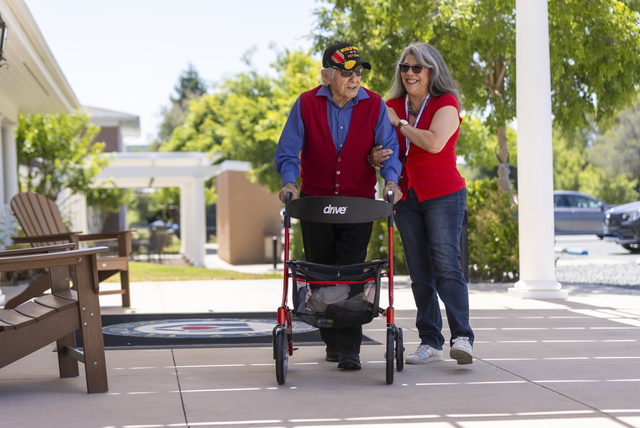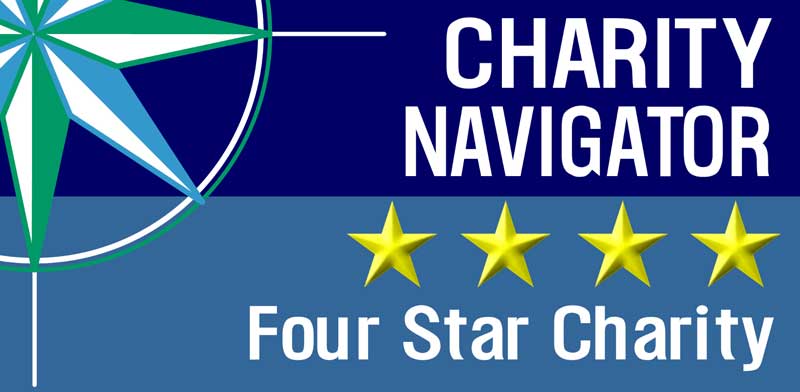At 104, David G. Perez has lived a long, full life full of devotion to his family and his country.
Born March 1, 1920, he grew up with a large extended family on a ranch owned by his grandfather in California.
In 1941, he enlisted in the Army and trained at Camp Roberts in San Miguel, California where they were so short on munitions and weapons that they used wooden rifles and learned from drawings on a chalkboard how to disassemble, clean, and reassemble their weapons. He then went to additional training at Fort Ord, California and later in Hawaii to be a combat medic.
“They shipped out from San Francisco, and they were headed to the Philippines, but the Philippines had gotten taken over from the Japanese, so then they ended up diverting to Hawaii. And so, he was in Hawaii for a little while before he shipped out to Saipan and Okinawa,” shared his daughter Felicia Perez Kausin.
David received two Bronze Star medals during his service. The first was in Saipan on June 21, 1944, where he evacuated four men while under fire. The Battle of Saipan was a pivotal moment in the Pacific when, as part of an Allied operation, U.S. forces captured the Mariana Islands. It is considered one of the fiercest battles in the Pacific with over 3,500 U.S. troops and almost 30,000 Japanese defenders dying. David later received a second Bronze Star for his actions during the Battle of Okinawa where he suffered a Traumatic Brain Injury (TBI) from an explosion during the fight and spent five days in a coma. Even after all these years, he continues to deal with Post Traumatic Stress (PTS).
“He had a TBI, and now we call it TBI, but back then it was called Shell Shock, but they didn't acknowledge the fact that what he really had was that,” said Felicia. “When he has his episodes, he's always fighting the Japanese. He's like, ‘this guy was trying to chase me.’”
David was released from service in September 1945 with several awards including two bronze medals, one of which was for his actions in Okinawa. He married his wife Lillian in 1950 and they had two children, Celia and Felicia.
Today, Felicia is her dad’s caregiver, and because of his TBI and PTS, she likes to be by his side as much as possible. Over the last several years, he has been through a lot.

“On April 9, 2018, when I had taken him in, he had three heart attacks in the emergency room, and then he actually had a fourth one about two o'clock in the morning. On April 12, he had his triple bypass open heart surgery at 98,” she said. Surviving the surgery at that age was unbelievable to Felicia. “He is so strong,” she said.
This past year, on September 26, David fell and was taken to the Palo Alto VA Medical Center. He had hit his head and was having trouble walking. When they discovered a fracture, he was admitted, and Felicia needed to find lodging so she could stay by her father’s side.
Initially, she was given a room at the Defender’s Lodge, but only stayed one night because it was at capacity. That’s when the social worker found her a room at the Palo Alto Fisher House. Felicia had heard about the comfort homes when, 15 years earlier, a neighbor’s husband was diagnosed with cancer and Felicia came to visit, but that was her only knowledge of the program.
“I met Tracy and Marlene, and Marlene gave me the tour, and I was like, this is unbelievable. I was in awe, and it was wonderful for me to be there,” she said. “Dad was very worried about where I would stay, and he had a really rough time that first go around when we were first there, but we got into our groove and really got to know some phenomenal people who I'm friends with to this day.”
“Everybody was there, and they all had their story and their loved ones that they were caring for.” She continued. “I’m like, ‘Okay, let me take you under my wings and try to do what I can.’ It really becomes a family with your people there.”
For nearly ten months Felicia stayed at the Palo Alot Fisher House while her dad had additional surgeries and treatments. She explained that the comfort of having her so close, where they would share memories and stories, meant a lot to her father. She described helping him look out his hospital room window and showing him the Fisher House.
“I think that the comfort of him knowing that I had some place to stay, that I was safe, that I didn't have to be driving back and forth. That whole concept of that, of just being able to be there, I think has been wonderful,” she said. “The comfort and the community, the sense of community that forms there. I think that's one of the things that's really just unbelievable. I'll never forget this experience for the rest of my life.”
David is still an active member of his community and enjoys talking to high school ROTC students about his time in the military. He has also served as the grand marshall during their hometown Veterans Day parade.
When asked what his secret to a good long life is, David replied, “No smoking, little drinking, and be good to people. If you’re good to people, they’re going to be good to you, that makes you feel good. You, know?”
As an advocate for her father, Felicia has learned to navigate the health care system. Through Fisher House, she has met numerous families who face those challenges as well, so her hope is to help other caregivers. She is also excited to share Fisher House with her community so others can get involved.
“Because of what they're going through with their loved ones, some are just, you can kind of see them. They're kind of paralyzed,” she explained. At Fisher House, Felicia gave comfort to other families. She described one guest who had just lost her brother. “She came downstairs, and I go, ‘you need some food.’ And I had made Mexican food that night. And I go, ‘here, sit down, eat.’ And she just looked at me and she just started crying. I’m like, ‘Oh, no, no, no.’ She goes, ‘oh, God.’ She goes, ‘you just saved my life.’”
Being there for her dad and caring for others is very important to Felicia which likely stems from the value of family that was instilled upon her by him.
"When I was in service, I thought of my family and friends. I'm proud of my country, but my family is what kept me strong," David said to a reporter in June.














